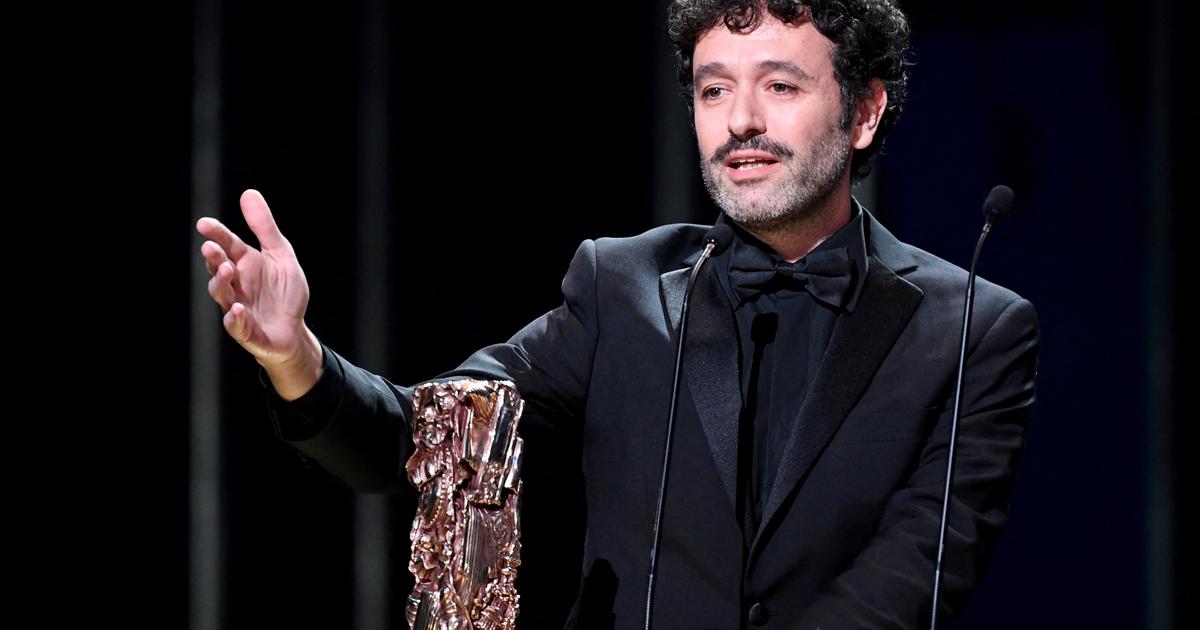Silverio Gama spends the day criticizing the United States.
But there he built his successful career and raised his children.
The filmmaker and journalist is among the most famous Mexicans on the planet.
And, although he often lays claim to his land, he has long since barely set foot on it.
He constantly seeks recognition from people who despise him.
He defends public transport that he has never taken in his life.
He attacks a capitalist system that he enjoys and feeds.
And every so often he promises that he will become a better father, just before disappearing again on another one of his dream trips.
More information
Iñárritu returns to Mexico with the comedy 'Bardo'
All this must go through the mind of director Alejandro González Iñárritu every day.
Little by little, seven years after the triumph of
The Revenant
, the creator has poured concerns, dilemmas, insecurities and contradictions into an
alter ego
and into a film:
Bardo.
False chronicle of a few truths.
Here is one of the most applauded filmmakers in the world, author of
Birdman
or
21 grams
.
And his most personal work, his return to Mexico 21 years after
Amores perro,
with the promise of emotional nudity.
In other words, one of the most anticipated films of the season, which premiered this Thursday at the Venice Film Festival competition.
And he left the public prisoner of doubts: did they love him?
Did they hate it?
Or even both?
Actor Daniel Giménez Cacho, star of 'Bardo', arrives at the premiere with filmmaker and photographer Maya Goded.ETTORE FERRARI (EFE)
The original title,
Limbo
, offers another clue about the project.
And the very term bardo, which in some Buddhist schools evokes a zone halfway between death and rebirth.
“This film, unlike the others, I didn't make it with my head, but with all my heart.
It is an emotional biography that does not pretend to be true, but honest.
The most difficult thing is to share it”, affirmed Iñárritu in his press conference.
And he revealed that just this Thursday it was 21 years since his family left Mexico City behind to move to Los Angeles.
For a year, in theory.
They haven't come back yet.
So much so that the creator perfectly controls both languages, but, at least on this occasion, he wanted to answer only in Spanish.
“What is most present when one leaves their land is the absence of that country.
And every country is a state of mind,
Some have compared the film to
Rome,
by Alfonso Cuarón, with whom he even shares some members of the team and a shoot measured to the millimeter.
Even the comment that Iñárritu made about Netflix, producers of both feature films and more focused on their platform than in theaters, recalls the one that his colleague made on his day.
“I have been guaranteed absolute support and freedom.
When I was studying cinema, beyond exhibitions and festivals, I saw the works of Bergman, Buñuel or Fellini on television, on VHS of terrible quality”, assured the creator of
Bardo.
Image from the shooting of 'Bardo', with Alejandro González Iñárritu and his alter ego, actor Daniel Giménez Cacho.
Roma
was also considered Cuarón's most intimate film;
yes
, Bardo
does not reach the status of immediate masterpiece.
Nor does he touch the emotional peaks of Fue
la mano de Dios
, Paolo Sorrentino's feature film about his truncated youth.
Nor does it spread the existential sadness of
Pain and Glory
, Pedro Almodóvar's most autobiographical work.
Which doesn't make it any worse.
Simply different.
Because Iñárritu's film is full of virtues to offer: his own.
A few prodigious sequences, of those that force you to visit the room (
Bardo
benefits from an unprecedented flexibility for Netflix: it will be in theaters seven weeks before debuting
online,
on December 16).
A gallery of technical and inventive wonders, a journey between dream and reality that invites you to open your mouth in amazement instead of yawning, despite a three-hour footage.
Family sequences as sweet as they are universal, between teenage children who move away, babies who never were and parents who are no longer, or are no longer themselves.
And endless topics and phrases that, once the screen is turned off, remain with the viewer: US imperialism, the impostor syndrome, the harsh Mexican reality, the bloody conquest of Hernán Cortés, the uprooting of those who live between two borders , the emptiness of cinema.
And so on.
And so on.
And so on.
"Only Mexicans are capable of transforming a tragic defeat into an epic victory," says the film.
And the director himself has managed to turn his torments into one of his greatest successes.
Although the footage also includes another exchange that sums up the feature's perhaps only serious problem.
"You couldn't with your fucking ego," his former friend Luis snaps at the protagonist, a character who seems to evoke Guillermo Arriaga, screenwriter of Iñárritu's first films until they broke off relations and the writer accused him of betraying him and stealing his ideas.
Because it is true that Silverio Gama is brimming with faults and defects.
But it is also true that, deep down, the film shows him as an intelligent, endearing, loved man.
Okay, your contradictions eat away at you.
But almost all of them are understandable, acceptable.
And there they continue and, presumably, they will continue.
It is as if, in some way, before Iñárritu lay down on the couch, absolution had already been guaranteed.
Sometimes
Bard
digs to the shadowy depths of his creator.
Other times, he just opens a shallow cut.
Thus, it is very possible that part of the public only sees in the film the superfluous burdens of a lucky bourgeois.
The director's own alter-ego, yes, responds in the film:
―Maybe it's just the chronicle of some uncertainties.
The protagonist, in
Bardo
, is given another lesson: "You have to give success a drink, swish it around and spit it out, so as not to get intoxicated."
His own father tells him, although the phrase really comes from Iñárritu's father.
“For him, success had two present and constant risks.
One was the temptation of pride.
And on the other hand, the inevitable loss of him leads to pain.
It can create a number of expectations, responsibilities.
It has been a learning path for me,” said the filmmaker.
And the main actor, Daniel Giménez Cacho, in turn shared the recommendation he received from Iñárritu: “He told me: 'Don't read the character, don't study him.
Let's not do a rational thing.'
It just had to be allowed to happen."
Todd Field, Cate Blanchett (centre) and Sophie Kauer before the gala screening of 'Tár'.
Andreas Rentz (Getty Images)
The other film of the day also moves in swampy terrain.
And it means another return, after an even longer wait.
It has taken 16 years since
Secret Games
for Todd Field to get behind the camera again.
Already during the elaboration of the script, yes, he had an absolute certainty: "It was written for Cate Blanchett".
"Yes, for you," the author addressed the Australian actress, present next to him at the press conference.
And in practically every frame of
Tár,
that she also opts for the Golden Lion. And who knows if, in a few months, for the Oscar for best leading actress.
In Venice the film has aroused great enthusiasm.
The first half hour of film consists of just three conversations.
Also full of classic musical references and words like
tremolo
and
scherzo.
A warning to navigators: those who do not want complexity can leave.
Whoever stays will discover the very solid construction of the character of an orchestra director, as well as the shadows of abuse of power and cancellation culture that darken her brilliant career.
"Todd is very good at presenting both sides of things," said the interpreter.
In the best cinema, the answers are almost never found.
Just gray, awkward areas.
Contradictions.
Like Iñárritu's.
Like everyone's.









